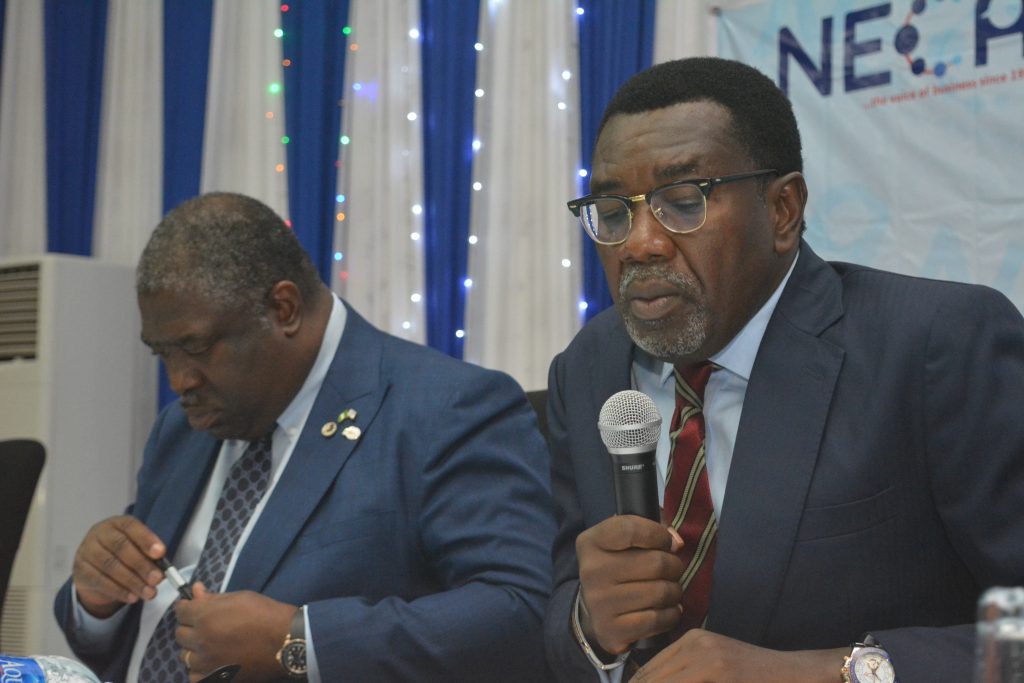NECA warns govt, others against another recession
 The outgoing President of the Nigeria Employers’ Consultative Association (NECA), Mr. Larry Ettah, who spoke at the 61st Annual General Meeting, has called for increased private sector vigilance of government’s management of the economy. He warned against relapsing into a recession, noting that the economy was not yet out of the woods. He said, “We have credibly discharged our role as the protector and defender of enterprise rights but the rising hostility of legislators against the private sector and the irrational tightening of the fiscal noose by the tax authorities have made it imperative for NECA to step up its advocacy strategy and deepen its resource to protect enterprise rights.”
The outgoing President of the Nigeria Employers’ Consultative Association (NECA), Mr. Larry Ettah, who spoke at the 61st Annual General Meeting, has called for increased private sector vigilance of government’s management of the economy. He warned against relapsing into a recession, noting that the economy was not yet out of the woods. He said, “We have credibly discharged our role as the protector and defender of enterprise rights but the rising hostility of legislators against the private sector and the irrational tightening of the fiscal noose by the tax authorities have made it imperative for NECA to step up its advocacy strategy and deepen its resource to protect enterprise rights.”
Mr. Ettah enjoined member-organizations of NECA to maintain a keen interest in key national issues that could impact on businesses in Nigeria, notably the unending saga of fuel subsidy regime and increased insecurity. He decried the “opaqueness” in the funding mechanism of deregulation in the oil and gas downstream sector of the economy, saying, “Government has not been faithful to its policy and the subsidy regime is back in a far more vicious form. We expect the government to be transparent in its management of this new subsidy dispensation.”
Mr. Ettah lamented government’s misalignment of economic priorities, judging by the 2018 budget which showed that recurrent expenditure as a percentage of total federal government expenditure stood at a staggering 69.2 percent, an increase from 68.27 percent in 2017. The implication, he said, was that the unhealthy “expenditure pattern is a clear indication that government is yet to accord the issue of infrastructural improvement the importance it deserves through adequate fiscal support.”
He expressed concerns over ‘possible unsustainable’ rising cost of servicing the country’s huge domestic and external debt, which the 2018 budget put at N2.233tn or 33.80 percent of the total expected revenue of N6.606.89tn. He added that this might soon lead Nigeria back to the pre-debt relief period.
“We encourage efforts to improve non-oil revenue generation as the most realistic way to reduce the debt service/revenue ratio, as articulated by the Economic Recovery Growth Plan,” he said.
While acknowledging ongoing efforts by the government to transform Nigeria to a diversified, sustainable and inclusive economy, he cautioned that such initiative would be jeopardized by continuing retention of the low tax to GDP ratio currently standing at six percent, one of the lowest in the world.
“Culled: The Punch”




Recent Comments